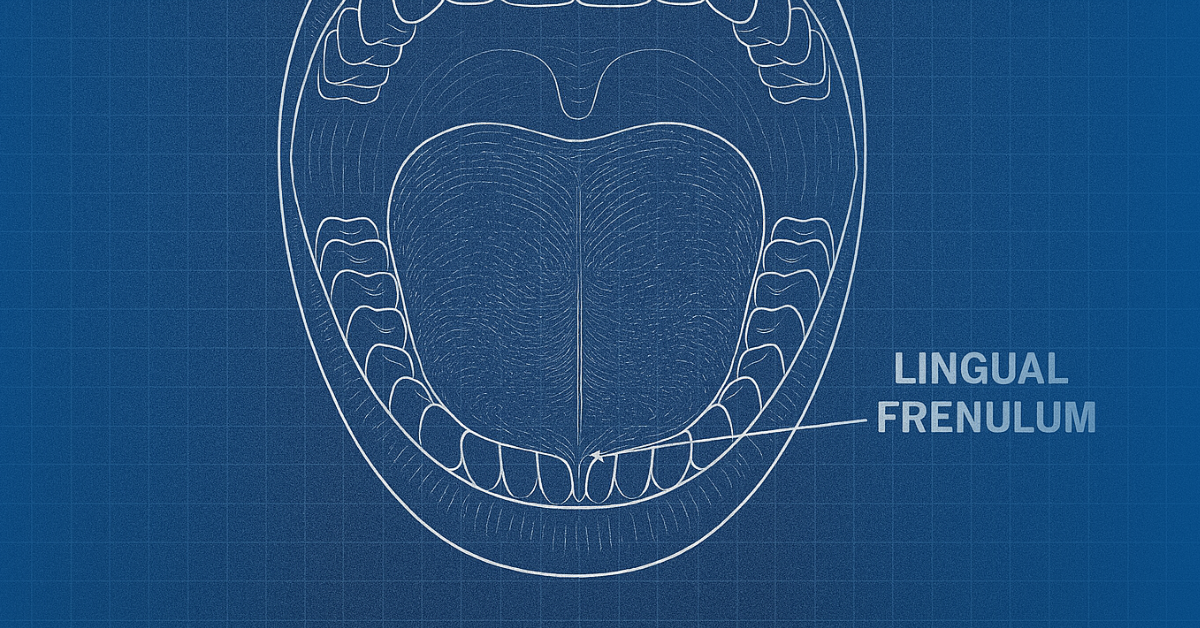When most people hear the term “tongue tie,” they think of infants who struggle with breastfeeding. But did you know that tongue ties often go undiagnosed well into adulthood? Many adults live with the effects of a restricted tongue without realizing it—dealing with chronic head, neck, and jaw pain, TMJ dysfunction, tension headaches, and even issues with sleep and digestion. If you’ve been searching for answers to chronic discomfort, your tongue could be the missing link.
What Is a Tongue Tie?
A tongue tie occurs when the thin band of tissue (called the frenulum) under the tongue is too tight, thick, or short. This restriction prevents the tongue from moving freely, which can impact everything from swallowing and speaking to breathing and posture. Over time, the body compensates for the restricted tongue by recruiting other muscles in the jaw, face, neck, and shoulders to take on extra work—leading to chronic tension and pain.
Signs You Might Have an Undiagnosed Tongue Tie
Adults with tongue ties often experience:
- Chronic jaw pain or TMJ dysfunction
- Head and neck tension
- Limited mouth opening
- Clicking or popping in the jaw
- Headaches or migraines
- Poor posture, forward head position
- Difficulty swallowing pills or certain foods
- Snoring or sleep apnea symptoms
Many people with tongue ties have been in and out of doctor’s offices, physical therapy, or chiropractic care without lasting relief because the root cause was never addressed.
How Myofunctional Therapy and Tongue Tie Release Work Together
At River City Myofunctional Therapy, we specialize in identifying and treating the functional issues associated with tongue ties. Myofunctional therapy helps prepare the tongue and surrounding muscles before and after a tongue tie release procedure (called a frenectomy). This ensures proper healing, improves tongue mobility, and prevents scar tissue from limiting movement again.
Through targeted exercises, we retrain your muscles to support healthy tongue posture, swallowing, and breathing. Many clients report immediate relief from jaw tension and neck pain—even during the release procedure—because the tight fascial pull on their muscles is finally released.
A Personal Experience with Tongue Tie Release
I’ve been there myself. For years, I dealt with jaw pain, limited mouth opening, and TMJ issues. After my own frenectomy and going through myofunctional therapy, I experienced life-changing relief. I could open my mouth fully without pain, eat comfortably, and the chronic tension I had lived with for years disappeared. That’s why I’m so passionate about helping others find the same freedom.
Curious If a Tongue Tie Could Be Causing Your Pain? Let’s Find Out.







